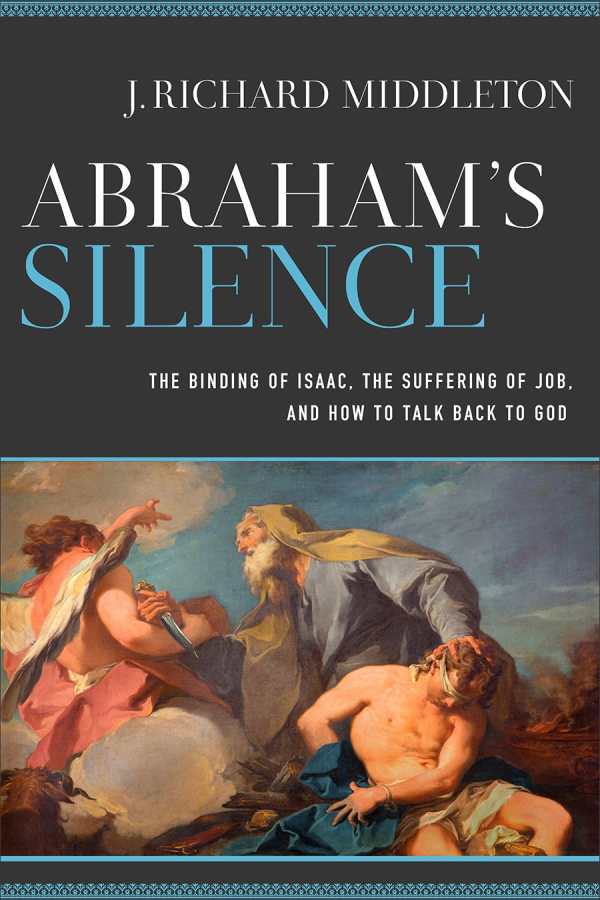Abraham's Silence
The Binding of Isaac, the Suffering of Job, and How to Talk Back to God
J. Richard Middleton’s impressive theological text considers how best to talk to God about human suffering and injustice.
Exploring two pivotal biblical stories—those of Abraham and Job—to consider human communication with God, the book begins with Abraham standing in silence before God as he is asked to sacrifice his son, Isaac. For Job, it focuses on more involved conversations with God, positing that the biblical book reflects a “what if” for how people in extreme circumstances might face unimaginable suffering. The book’s base belief is that God respects people who are willing to stand up for themselves through vigorous prayer.
Organized around a series of close exegetical readings of Genesis and Job, the text wrestles with standard Christian theology, which treats Abraham’s silence as proof of his devotion and faith. Middleton instead argues for questioning such silence, which he finds uncomfortable. He ties Job, a biblical outlier, to the binding of Isaac, drawing fascinating theological links between the two stories and making assertions about God’s personality based on them.
Middleton’s willingness to consider both the Christian implications and the established rabbinical teachings on the texts, along with the underlying Hebrew, are impressive. For example, the text looks at Job’s Leviathan, finding an echo of the power that people ought to project when they’re speaking to God and offering their “gritty” laments. It concludes that Abraham’s silence before God, so long ago, was wrong. God had hoped, Middleton argues, that Abraham would have understood that God is not just a God of fear, but one of mercy.
Abraham’s Silence is a complex religious book that delves deep into biblical scholarship to give people permission to take their laments and suffering straight to God.
Reviewed by
Jeremiah Rood
Disclosure: This article is not an endorsement, but a review. The publisher of this book provided free copies of the book to have their book reviewed by a professional reviewer. No fee was paid by the publisher for this review. Foreword Reviews only recommends books that we love. Foreword Magazine, Inc. is disclosing this in accordance with the Federal Trade Commission’s 16 CFR, Part 255.

